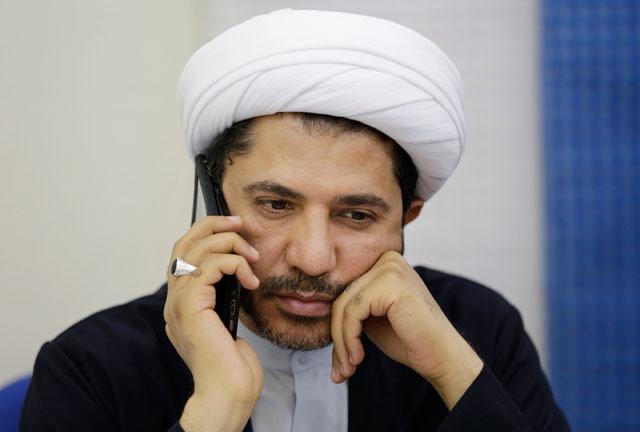You are here
Bahrain bans main opposition activity for three months
By AFP - Oct 28,2014 - Last updated at Oct 28,2014

DUBAI — A Bahraini court banned the Gulf state's main opposition movement for three months Tuesday, just weeks before a parliamentary election the group had already said it would boycott.
Al Wefaq said it was seriously concerned by the move, which it described as "irrational and irresponsible".
The Manama administrative court ruled that Al Wefaq, which draws most of its support from the Sunni-ruled kingdom's Shiite majority, had violated the law on associations, a court official said.
Political parties are banned in key US ally Bahrain, as in other Gulf Arab monarchies. Al Wefaq has the status of an association.
In July, the justice ministry sued Al Wefaq, demanding it rectify its "illegal status following the annulment of four general assemblies for lack of a quorum and the non-commitment to the public and transparency requirements for holding them".
The court gave the group three months to hold a general assembly to elect its leaders, the official said.
Without commenting on the accusations, Al Wefaq responded saying "the tyrannical dictatorship in Bahrain is ruling with an iron fist and moving to destroy the political and social life by blocking the people out".
The United States had voiced "strong concerns" over the lawsuit, warning of its potential impact on the November 22 polls.
Not only has Al Wefaq announced a boycott, but so have other opposition groups.
In July, Bahrain's chief prosecutor tested relations with close ally Washington when he charged Al Wefaq head Sheikh Ali Salman, and his political aide, ex-MP Khalil Marzooq, with violating a law on foreign contacts by meeting US Assistant Secretary of State for Democracy, Human Rights and Labour Tom Malinowski.
Following the meeting, Bahrain told Malinowski he was "unwelcome" and said he should leave the country "immediately".
Vote faces 'organised terrorism'
Elections for a new 40-seat lower house of parliament are the first since 2011 protests demanding more representative democracy. Municipal elections will be held simultaneously.
Al Wefaq, which led the protest movement against the Sunni regime, made slender gains in the last election, in 2010. But it withdrew its 18 MPs after the government crushed the protests in March 2011.
The opposition is demanding an independent electoral commission and the dissolution of the consultative council, parliament's upper chamber whose members are appointed by the king.
It is also demanding the prime minister be appointed by parliamentary majority, instead of the king.
Bahraini authorities accuse Al Wefaq of fuelling unrest across the kingdom, as people in Shiite villages hold frequent protests and sometimes clash with members of the security forces.
But Al Wefaq insists on the "peaceful" nature of its movement.
Tensions are already running high with the pre-election campaign marked by sporadic acts of violence.
The authorities have been accusing dissidents during the past weeks of attacking candidates to whom the interior ministry has offered protection.
And government spokeswoman Sameera Rajab wrote Friday on Twitter that "elections in Bahrain are facing organised terrorism".
But no major incidents or casualties have been reported.
The opposition took part in two rounds of dialogue after the uprising but withdrew from the talks, saying the authorities were not making enough concessions.
In reaction to Tuesday's decision, New York-based Human Rights First warned it could "lead to more friction and instability in the country as it prepares for parliamentary elections".
Human Rights First's Brian Dooley said: "With less than four weeks until Bahrain's parliamentary elections, the decision to suspend Al Wefaq looks far from coincidental."
With the decision, Al Wefaq would no longer be able to carry out public campaigns to persuade people not to vote in the election, said Dooley.
"Today's ruling takes Bahrain further off the path to democracy," he said.
Al Wefaq vowed to "continue in its struggle for democratic transition and justice to build a democratic state for all Bahrainis and end the totalitarian rule that is excluding the people through harsh sentences and security measures that violate fundamental human rights."
Related Articles
Four opposition groups including the largest, Al Wefaq, will boycott a parliamentary election scheduled for November in Bahrain to protest what they described as a vote where the results would be "fully controlled by the ruling authority".
Controversy clouded Sunday Bahrain's first election since Sunni authorities crushed protests led by the Gulf monarchy's Shiite majority, with the opposition mocking government boasts of more than 50 per cent turnout.
DUBAI, United Arab Emirates — A court in Bahrain ordered the country's main Shiite opposition group to be dissolved on Sunday, deepening a c
















